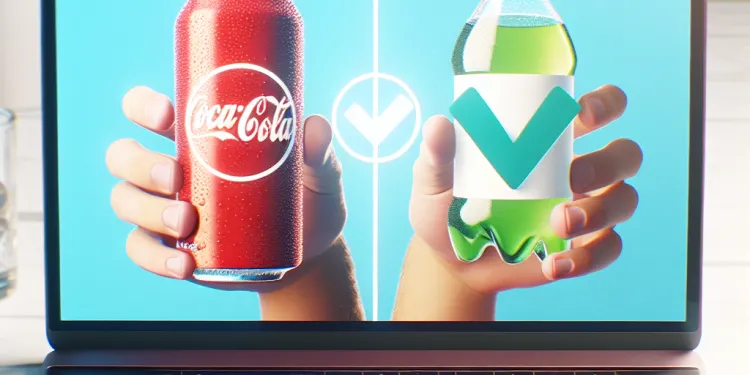
Find Help
More Items From Ergsy search
-
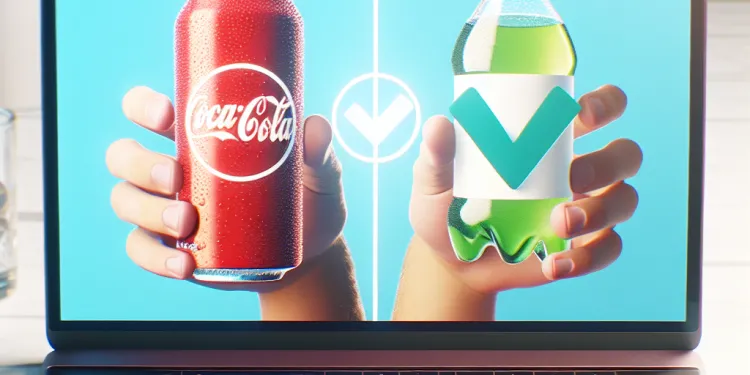
What role do sugary drinks play in obesity?
Relevance: 100%
-

Are sugary drinks worse than sugary foods for causing tooth decay?
Relevance: 72%
-

What impact has the sugar tax had on obesity rates?
Relevance: 56%
-

Obesity
Relevance: 55%
-

Has the sugar tax affected the sugar content in drinks?
Relevance: 48%
-

Is childhood obesity a concern in the United Kingdom?
Relevance: 48%
-

What causes obesity?
Relevance: 45%
-
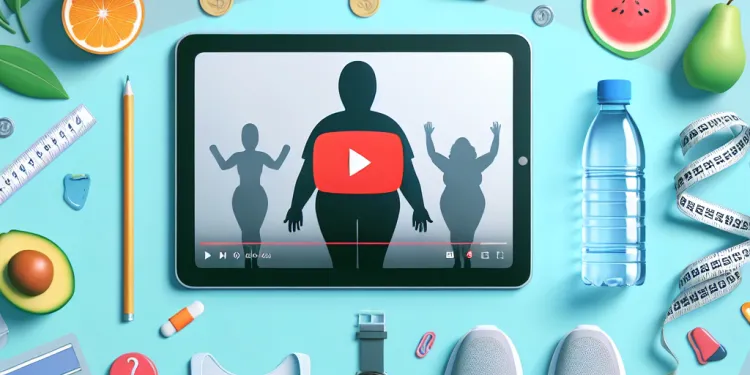
How can obesity be prevented?
Relevance: 45%
-
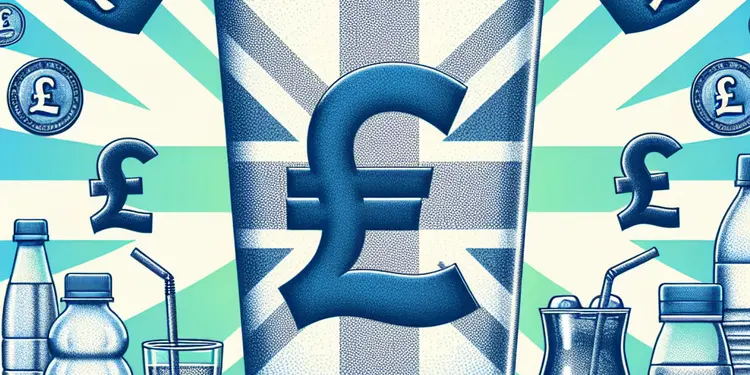
Has the sugar tax led to innovation in the drinks industry?
Relevance: 43%
-
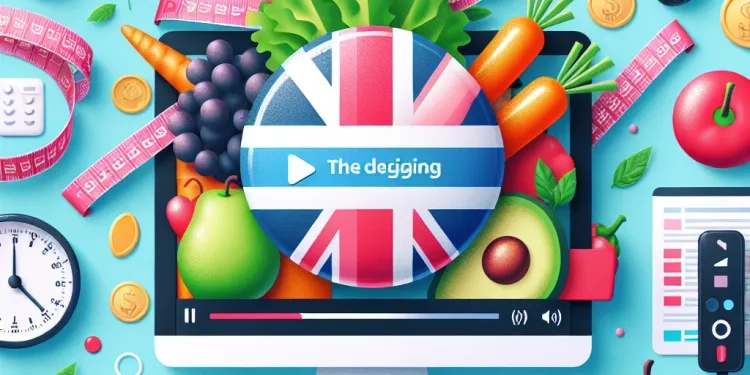
What role does diet play in managing obesity?
Relevance: 42%
-
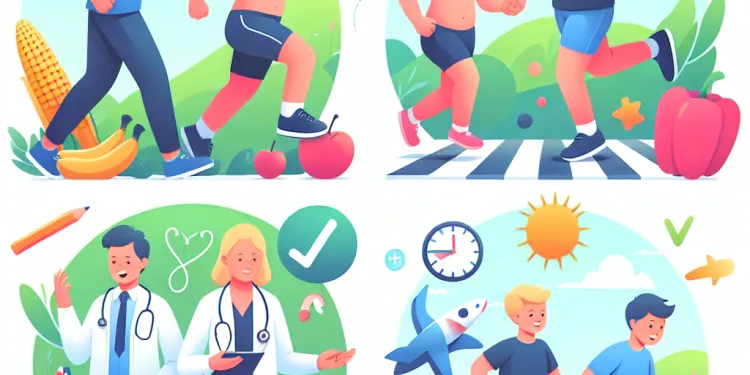
Is childhood obesity a concern in the United Kingdom?
Relevance: 40%
-

Are there any societal factors that contribute to obesity?
Relevance: 37%
-

What is the purpose of the sugar tax?
Relevance: 37%
-

Who pays the sugar tax?
Relevance: 36%
-

How is obesity measured?
Relevance: 36%
-

What are the current statistics on childhood obesity in the UK?
Relevance: 36%
-

Has the sugar tax been effective?
Relevance: 36%
-

Which drinks are exempt from the sugar tax?
Relevance: 35%
-

Can genetics influence obesity?
Relevance: 35%
-

What are the long-term goals of the sugar tax?
Relevance: 34%
-

What treatments are available for obesity?
Relevance: 34%
-

How does the sugar tax affect consumers?
Relevance: 34%
-

What health risks are associated with obesity?
Relevance: 34%
-

What is the sugar tax in the UK?
Relevance: 34%
-

What is the impact of obesity on mental health?
Relevance: 34%
-
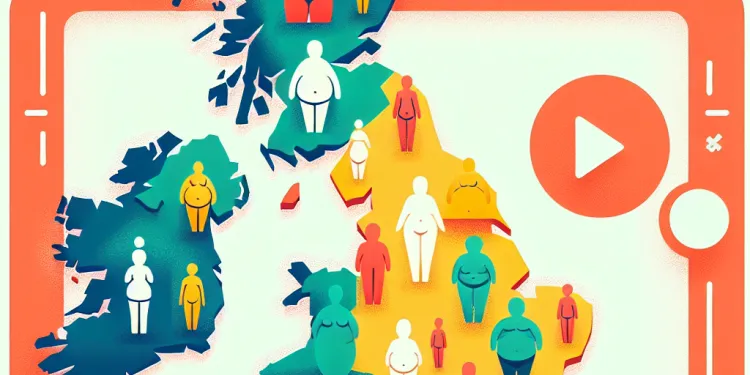
Is obesity more prevalent in certain regions of the UK?
Relevance: 34%
-

Is the sugar tax applied to diet or zero sugar drinks?
Relevance: 33%
-
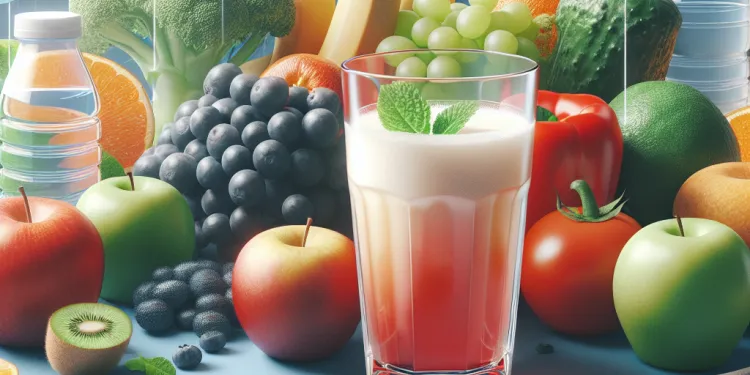
What should I eat or drink if I have norovirus?
Relevance: 33%
-

How does the sugar tax align with public health strategies?
Relevance: 32%
-
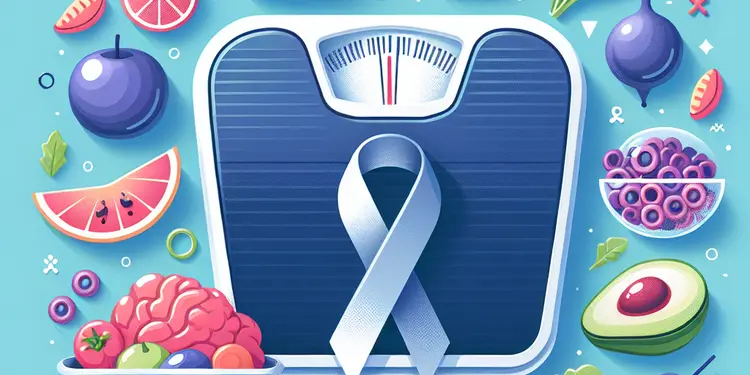
How does obesity affect bowel cancer rates?
Relevance: 31%
-

How important is physical activity in preventing obesity?
Relevance: 31%
-

Does the sugar tax apply to small businesses?
Relevance: 31%
-

What is binge drinking?
Relevance: 31%
-
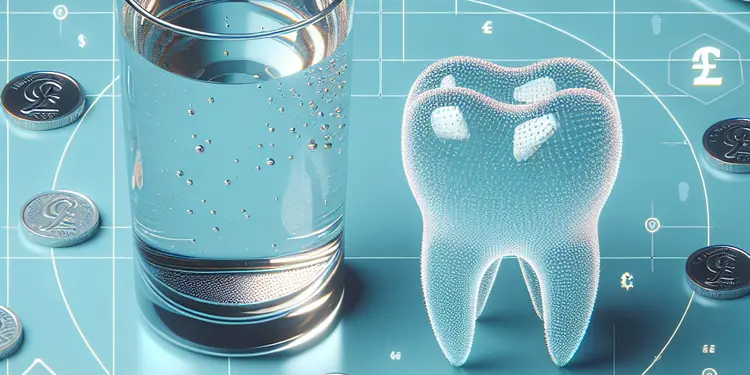
Can drinking water help prevent tooth decay?
Relevance: 30%
-

Do weight loss jabs work for all types of obesity?
Relevance: 29%
-

Are there cultural factors in binge drinking?
Relevance: 29%
-

Study Finds Alarming Increase in Childhood Obesity Rates Post-Pandemic
Relevance: 29%
-

What are common examples of junk food?
Relevance: 29%
-

How do I know if my drink was spiked?
Relevance: 29%
-
Are high caffeine drinks safe?
Relevance: 29%
The Role of Sugary Drinks in Obesity
Understanding Sugary Drinks
Sugary drinks, including sodas, fruit juices, sweetened teas, and energy drinks, are popular beverages routinely consumed worldwide. In the UK, these beverages contribute significantly to the sugar intake across all age groups. They are attractive due to their sweetness, affordability, and the immediate energy boost they provide. However, their high sugar content can have detrimental effects on health, particularly when consumed in excess.
Caloric Intake and Weight Gain
Sugary drinks are often high in calories and low in nutritional value, meaning they contribute to caloric intake without offering essential nutrients. Consuming these calories in liquid form may lead to excess energy consumption, as liquids can lead to less satiety compared to solid foods. As these drinks are often consumed in addition to regular meals and snacks, they can significantly increase overall caloric intake, contributing to weight gain and obesity.
Impact on Obesity in the UK
Obesity is a major public health challenge in the UK, affecting millions of people and increasing the risk for various health conditions such as type 2 diabetes, cardiovascular disease, and certain cancers. Sugary drinks are a major factor in the rising obesity rates, particularly among children and adolescents. The consumption of these beverages has been positively associated with weight gain and increased BMI, marking them as a target area for obesity prevention efforts.
Pursuing Healthier Alternatives
Reducing the intake of sugary drinks and replacing them with healthier alternatives such as water, unsweetened teas, and diluted fruit juices can be a positive step towards managing weight and improving overall health. Public health initiatives in the UK, such as the sugar tax on soft drinks and educational campaigns, aim to reduce sugary drink consumption. These efforts seek to encourage healthier hydration habits and mitigate the impact of sugary drinks on obesity.
Conclusion
In conclusion, sugary drinks play a significant role in promoting obesity due to their high caloric content and low nutritional value. Addressing the consumption of these beverages is a crucial part of broader obesity prevention strategies in the UK. By making informed choices and opting for healthier beverages, individuals can take steps towards better health and contribute to the national effort to combat obesity.
The Role of Sugary Drinks in Obesity
Understanding Sugary Drinks
Sugary drinks include sodas, fruit juices, sweetened teas, and energy drinks. Many people around the world like drinking them because they taste sweet, are cheap, and give a quick energy boost. In the UK, these drinks add a lot of sugar to our diets. But drinking too many sugary drinks is not healthy and can be bad for you.
Caloric Intake and Weight Gain
Sugary drinks have a lot of calories but not many good nutrients. When we drink these calories instead of eating them, our body might not feel as full. This means we may eat or drink more than we need. Having too many sugary drinks along with our meals and snacks can make us gain weight.
Impact on Obesity in the UK
In the UK, many people are affected by obesity, which means having too much body fat. This can lead to other health problems like type 2 diabetes, heart disease, and some cancers. Drinking a lot of sugary drinks is linked to getting heavier and is one reason why more people, especially kids and teenagers, are becoming overweight. Stopping or reducing sugary drink consumption is important for preventing obesity.
Pursuing Healthier Alternatives
To stay healthy, it is a good idea to drink less sugary drinks and choose healthier options like water, unsweetened teas, or watered-down fruit juices. The UK has health programs to help people drink less sugar, like putting a tax on sugary drinks and teaching people about better drink choices. These actions help everyone drink in a healthier way.
Conclusion
In summary, sugary drinks can make us put on weight because they have lots of calories but not many nutrients we need. Cutting down on these drinks is a big step towards stopping obesity in the UK. By picking better drinks, we can help ourselves stay healthy and support efforts to reduce obesity nationwide.
Frequently Asked Questions
How do sugary drinks contribute to obesity?
Sugary drinks are high in calories and sugar content, which can contribute to an excessive calorie intake, leading to weight gain and obesity.
Are all sugary drinks equally bad for obesity?
Not all sugary drinks are equal, but most contain high levels of added sugars with minimal nutritional benefits, making them significant contributors to obesity.
How much sugar do typical sugary drinks contain?
Many sugary drinks contain a substantial amount of sugar, often exceeding the recommended daily sugar intake in a single serving.
What is the recommended daily sugar intake?
For an average adult in the UK, it's recommended to limit free sugars to no more than 30 grams per day.
Can reducing sugary drink consumption help with weight loss?
Yes, reducing the intake of sugary drinks can lower total calorie consumption, which may contribute to weight loss.
Are fruit juices considered sugary drinks?
Fruit juices can be high in natural sugars, and although they may contain some nutrients, they should still be consumed in moderation.
What's the difference between natural and added sugars in drinks?
Natural sugars are found inherently in foods like fruits, while added sugars are incorporated during processing or preparation of drinks.
Can artificial sweeteners in drinks help prevent obesity?
Artificial sweeteners provide a low-calorie alternative to sugar, which might help reduce overall calorie intake, but their long-term effects on obesity are still debated.
Why is sugar from drinks more problematic than sugar in solid food?
Sugars in drinks are absorbed quickly since liquid calories don't provide the same satiety as solid foods, leading to overconsumption and increased risk of obesity.
What are some alternatives to sugary drinks?
Alternatives include water, herbal teas, and drinks using natural flavours without sugar. These options can keep you hydrated without extra calories.
How can I identify sugary drinks when shopping?
Check the nutrition labels; look for high amounts of added sugars and syrups. Terms like 'sucrose', 'glucose', and 'fructose' indicate added sugars.
Does the consumption of sugary drinks affect children differently?
Children can be more susceptible to the effects of sugary drinks, including developing poor dietary habits and increased risk for obesity.
Are sports drinks and energy drinks high in sugar?
Yes, many sports drinks and energy drinks are high in sugar. They are often marketed for specific needs but contribute to sugar intake and obesity outside those contexts.
How has the UK government addressed the issue of sugary drinks and obesity?
The UK government has implemented measures like the Soft Drinks Industry Levy to reduce sugar consumption from soft drinks and encourage healthier alternatives.
What can individuals do to reduce their consumption of sugary drinks?
Individuals can switch to water, gradually reduce the amount of sugar in drinks, and educate themselves about healthier choices to manage their intake effectively.
How do sugary drinks make people gain too much weight?
Sugary drinks have a lot of sugar and calories. Drinking too many can make you gain weight and might cause obesity.
Are all sugary drinks bad for making you gain weight?
Not all sugary drinks are the same. But most have lots of added sugar and not much good stuff for your body. This can make people gain weight.
How much sugar is in sugary drinks?
Many sugary drinks have a lot of sugar. Sometimes, just one drink can have more sugar than what experts say we should have in a whole day.
How much sugar should you have each day?
It's important not to eat too much sugar. Experts say:
- Grown-ups should have no more than 30g of sugar each day.
- Children aged 7 to 10 should have no more than 24g of sugar each day.
- Children aged 4 to 6 should have no more than 19g of sugar each day.
Here are some ways to check your sugar:
- Look at food labels to see how much sugar is in your food.
- Use a phone app to scan barcodes on food packages.
In the UK, grown-ups should eat no more than 30 grams of free sugars each day.
Can drinking less sugary drinks help you lose weight?
Drinking lots of sugary drinks like soda can make us gain weight. This is because sugary drinks have a lot of sugar and calories.
If we drink less sugary drinks, we might lose weight. This is because we are not taking in as many extra sugars and calories.
Instead of sugary drinks, try drinking water or milk. These drinks are healthier and can help with weight loss.
If you need help, ask a grown-up or your doctor. They can give you more tips on what to drink.
Yes, drinking fewer sugary drinks can help you eat fewer calories. This might help you lose weight.
Do fruit juices have a lot of sugar in them?
Fruit juices can have a lot of sugar. It's important to check the label to see how much sugar is in them. Drinking too much sugar is not healthy.
It can help to use tools like a food label guide to know how much sugar is in your drink.
Fruit juices have a lot of natural sugar. They do have some good stuff for your body too. But it's important not to drink too much.
What’s the difference between natural sugars and added sugars in drinks?
Sugars can be in drinks two ways: they are either natural or added. Here’s how they are different:
Natural sugars: These sugars are already in food and drinks. For example, fruit juices have natural sugars from the fruits.
Added sugars: These sugars are not in the food or drink to start with. People add them to make things sweeter. Some sodas have added sugars.
You can use pictures or videos to help understand better. It’s like having a label that tells you which sugars are inside. You can ask someone you trust to help explain too!
Natural sugars are already in foods like fruits. Added sugars are put into foods when they are made or cooked.
Do sugar-free drinks help stop weight gain?
Artificial sweeteners are ingredients that make food taste sweet, but they have fewer calories than sugar. This might help people eat fewer calories. But, we still do not know if they help people stay at a healthy weight in the long run.
Why is sugar in drinks worse than sugar in food?
Sugar in drinks is not good for you. It is easy to drink a lot of sugar quickly. Drinks do not make you feel full, so you might eat more sugar without knowing it.
When you eat food with sugar, it takes longer to eat, and you feel full faster. This helps you eat less sugar.
To help you, try these ideas:
- Drink water instead of sugary drinks.
- If you want a sweet drink, try adding a little bit of juice to water.
- Eat fruit instead of drinking fruit juice. It is healthier for you.
Sugars in drinks go into our bodies quickly. Drinking sugary drinks doesn't make us feel full like eating food does. This means we might drink too much, which can make us gain weight.
What can I drink instead of sugary drinks?
Instead of sugary drinks, you can try drinking water or herbal teas. You can also have drinks with natural flavors and no sugar. These drinks help you stay healthy and hydrated without extra calories.
How to Find Sugary Drinks When Shopping?
When you go shopping, it can be hard to know which drinks have a lot of sugar. Here is how you can tell:
- Look at the label: Check the packaging. It will show how much sugar is in the drink. Look for the word "sugar" and the number next to it.
- Ingredients list: Read the list of ingredients. If sugar is one of the first things listed, the drink has a lot of sugar.
- Words that mean sugar: Watch out for other words that mean sugar. Words like "syrup," "honey," or anything ending in "-ose," like "glucose" or "fructose."
- Color and design: Drinks with bright colors or cartoon characters often have a lot of sugar. Be careful with these drinks.
Remember to ask someone to help you if you are unsure. You can also use apps or online tools to check the sugar levels in drinks.
Look at the food labels to see how much sugar is added. Words like 'sucrose', 'glucose', and 'fructose' mean there is extra sugar.
Do sugary drinks affect kids in a different way?
Sugary drinks are drinks with a lot of sugar, like soda or sweet juice.
These drinks might make kids feel different than adults.
Kids might feel more energy for a while after drinking them.
But too many sugary drinks are not healthy. They can cause problems like:
- Weight gain
- Bad teeth
- Feeling tired later
It's good to drink water and eat healthy foods.
Ask an adult or doctor if you're not sure about drinks.
Children can be more sensitive to sugary drinks. These drinks can cause bad eating habits and make it easier for kids to become overweight.
Do sports drinks and energy drinks have a lot of sugar?
Sports drinks and energy drinks can have a lot of sugar. It is important to check the label on the bottle or can. Look for how much sugar is in one serving.
If you want less sugar, drink water or try drinks with no sugar. You can also eat healthy snacks or fruits for energy.
Ask an adult or use tools like reading glasses or magnifiers if you need help reading labels.
Yes, lots of sports drinks and energy drinks have a lot of sugar. They are sold for special reasons, but they can make you have too much sugar and become overweight if you drink them when you don't need to.
If you have trouble reading, you can try using audiobooks or asking someone to read with you. There are also apps that can read text aloud.
What has the UK government done about sugary drinks and people getting too heavy?
The UK government has worked hard to help people be healthier. They want people to drink less sugary drinks and not put on too much weight. Here are some things they have done:
- Sugar Tax: Companies pay more money if their drinks have lots of sugar. This is to make drinks healthier.
- Education: The government teaches people about eating healthy food and drinking less sugary drinks.
- Support for Parents and Schools: They help parents and schools learn how to give children healthier food and drink choices.
These steps are to help everyone stay healthy and strong. If you want to learn more, you can ask a parent or teacher for help, or use pictures and videos that show how to eat healthy and stay active.
The UK government has made rules to help people drink less sugar. One rule is the Soft Drinks Industry Levy. This rule makes companies use less sugar in drinks and make healthier drinks.
How can people drink less sugary drinks?
People can start drinking water instead of sugary drinks. They can slowly use less sugar in their drinks. It’s good to learn about healthy choices to help control how much sugar they have.
Useful Links
This website offers general information and is not a substitute for professional advice.
Always seek guidance from qualified professionals.
If you have any medical concerns or need urgent help, contact a healthcare professional or emergency services immediately.
Some of this content was generated with AI assistance. We’ve done our best to keep it accurate, helpful, and human-friendly.
- Ergsy carfully checks the information in the videos we provide here.
- Videos shown by Youtube after a video has completed, have NOT been reviewed by ERGSY.
- To view, click the arrow in centre of video.
- Most of the videos you find here will have subtitles and/or closed captions available.
- You may need to turn these on, and choose your preferred language.
- Go to the video you'd like to watch.
- If closed captions (CC) are available, settings will be visible on the bottom right of the video player.
- To turn on Captions, click settings .
- To turn off Captions, click settings again.
More Items From Ergsy search
-

What role do sugary drinks play in obesity?
Relevance: 100%
-

Are sugary drinks worse than sugary foods for causing tooth decay?
Relevance: 72%
-

What impact has the sugar tax had on obesity rates?
Relevance: 56%
-

Obesity
Relevance: 55%
-

Has the sugar tax affected the sugar content in drinks?
Relevance: 48%
-

Is childhood obesity a concern in the United Kingdom?
Relevance: 48%
-

What causes obesity?
Relevance: 45%
-

How can obesity be prevented?
Relevance: 45%
-

Has the sugar tax led to innovation in the drinks industry?
Relevance: 43%
-

What role does diet play in managing obesity?
Relevance: 42%
-

Is childhood obesity a concern in the United Kingdom?
Relevance: 40%
-

Are there any societal factors that contribute to obesity?
Relevance: 37%
-

What is the purpose of the sugar tax?
Relevance: 37%
-

Who pays the sugar tax?
Relevance: 36%
-

How is obesity measured?
Relevance: 36%
-

What are the current statistics on childhood obesity in the UK?
Relevance: 36%
-

Has the sugar tax been effective?
Relevance: 36%
-

Which drinks are exempt from the sugar tax?
Relevance: 35%
-

Can genetics influence obesity?
Relevance: 35%
-

What are the long-term goals of the sugar tax?
Relevance: 34%
-

What treatments are available for obesity?
Relevance: 34%
-

How does the sugar tax affect consumers?
Relevance: 34%
-

What health risks are associated with obesity?
Relevance: 34%
-

What is the sugar tax in the UK?
Relevance: 34%
-

What is the impact of obesity on mental health?
Relevance: 34%
-

Is obesity more prevalent in certain regions of the UK?
Relevance: 34%
-

Is the sugar tax applied to diet or zero sugar drinks?
Relevance: 33%
-

What should I eat or drink if I have norovirus?
Relevance: 33%
-

How does the sugar tax align with public health strategies?
Relevance: 32%
-

How does obesity affect bowel cancer rates?
Relevance: 31%
-

How important is physical activity in preventing obesity?
Relevance: 31%
-

Does the sugar tax apply to small businesses?
Relevance: 31%
-

What is binge drinking?
Relevance: 31%
-

Can drinking water help prevent tooth decay?
Relevance: 30%
-

Do weight loss jabs work for all types of obesity?
Relevance: 29%
-

Are there cultural factors in binge drinking?
Relevance: 29%
-

Study Finds Alarming Increase in Childhood Obesity Rates Post-Pandemic
Relevance: 29%
-

What are common examples of junk food?
Relevance: 29%
-

How do I know if my drink was spiked?
Relevance: 29%
-
Are high caffeine drinks safe?
Relevance: 29%


